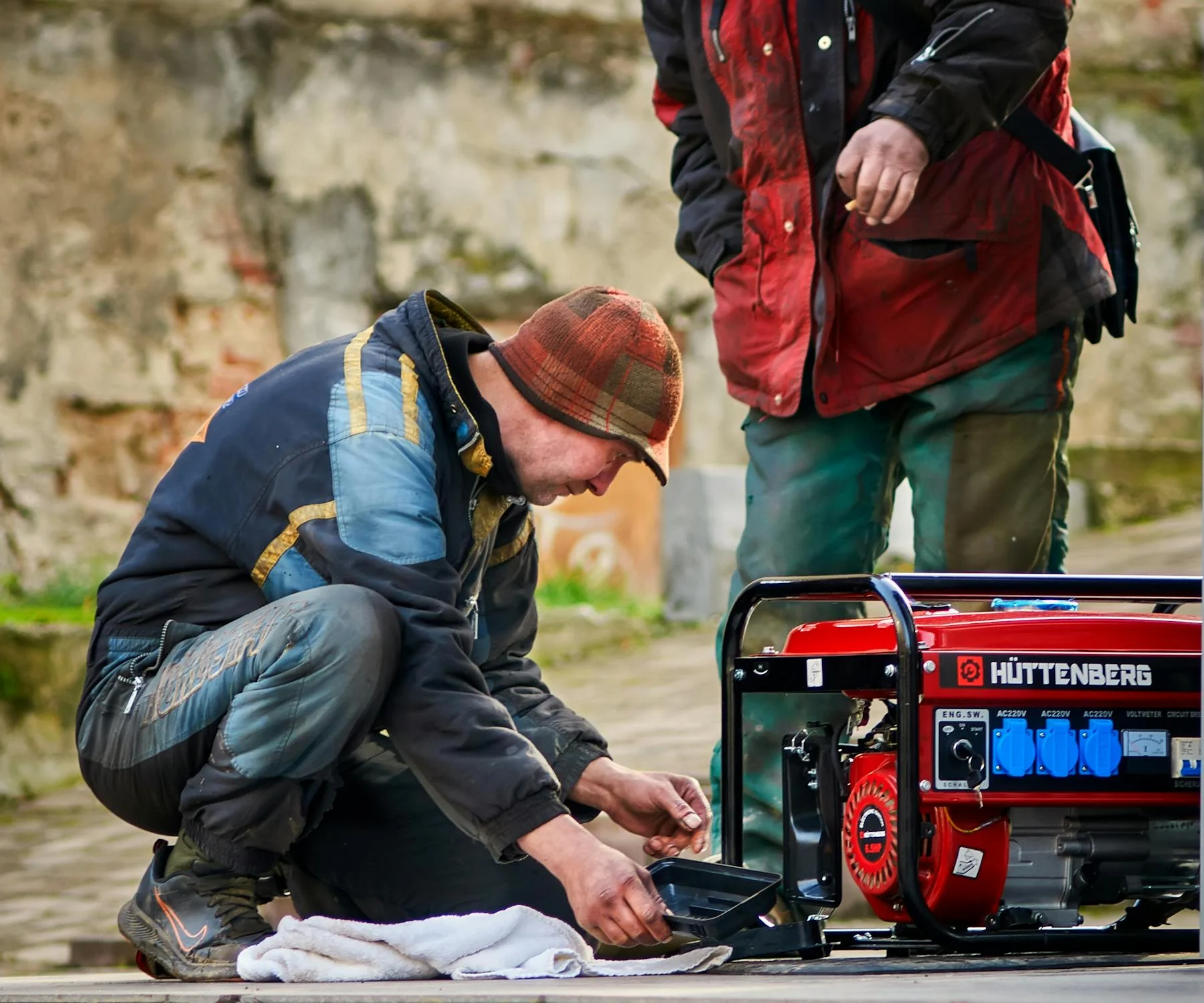If you're new to generators and want to purchase one online, one of the most important things you'll need to consider is the generator runtime. While newbies often ask this question, sometimes even professionals need to ask the same question especially when sizing a generator. With the increasing number of different types of generators, it's a good idea to know how long a generator can run continuously.
Ideally, different generators have different runtimes depending on a wide range of factors. The size of the generator, for instance, can dictate how much fuel it consumes. This article will thus review some of the different factors that influence how long a generator can run continuously.
The type of generator you choose is usually the first thing to consider as some certain types of generators are known to have longer runtimes. While looking for a generator, you will come across three main types. These include:
- Standby Generators
- Portable Generators
- Inverter Generators
Standby Generators
Of the three main types of generators, standby generators are by far the largest and most powerful. You will typically find standby generators in places such as hospitals or institutions that have massive power requirements. In addition, standby generators have automatic transfer capability which means that whenever there's a power outage, the generator will automatically kick in a few seconds later.

Because of their size, it is only natural that standby generators also ship with large fuel tanks by default. The size of the tanks will vary depending on the brand of the generator or even the model. However, it is possible to upgrade your fuel tank in case you need to store more fuel. Generac generators, for example, can be fitted with slightly larger fuel tanks but at an extra cost.
Typical standby generators can have runtimes of 12 hours to 3 days. You can thus see why they are more favored by hospitals and institutions. The only downside is that for you to keep them running continuously for such long durations, you would also need a lot of fuel as well. Besides the amount of fuel needed, the initial investment needed is also high since standby generators can cost up to $30,000.
Portable Generators
There's a high chance that most of the generators you've come across are actually portable generators. From their name, you can tell that they are portable and easy to move from one location to another unlike the case with standby generators.

Regardless of their portability, these generators are also equally powerful, but this depends on the overall rating of the generator you choose. Some portable generators have ratings that are well over 7KW and may thus provide enough power for your home.
The general rule still maintains here as well though. If you prefer a portable generator with a higher rating, you'll probably need more fuel to power the generator for the entire period. Additionally, the load will also determine how long your portable generator will run continuously. Hooking up your generator to a 50% load will enable it to run for longer than when you have a higher load. The generator will automatically draw in more fuel to meet your energy requirements.
Theoretically, portable generators are also capable of running continuously for long hours. Sometimes, they can go well over 30 hours. Sadly, they need more maintenance compared to standby generators. This means that even if you can buy a larger fuel tank for them so that you can reduce the number of refills, you'd still need to worry about maintenance. In most cases, this can include things such as checking the generator's oil levels.
Inverter Generators
An inverter generator is a tailgater's favorite asset. This is because only the generator stands in the way of how long the tailgating party can last. Of course, since tailgating parties hardly ever go for a full 24 hours, inverter generators are made to provide power for much shorter durations. High end inverter generators can manage up to 15 hours of runtime when connected to smaller loads.

In addition, an inverter generator is less robust as compared to standby or portable generators. For instance, the Honeywell home backup generator replaced stadium generators that were smaller and less robust. In fact, it is normally forbidden to energize appliances that require plenty of power, for example, electric tools from inverter generators. However, devices such as smartphones, laptops, or portable Bluetooth speakers can run okay or fine depending on what is meant.
When connected in parallel, inverter generators can operate for several hours since they are effectively synchronized together. This helps to make sure that every individual generator operates slightly below the optimum capacity of a general power system. Moreover, the total power turnout will be somewhat increased, and you will be able to use more power vices, connecting more applicants.
The downside is that you will still need to fuel each individual generator after a certain duration. This means it still won't beat a standby generator when it comes to continuous runtime.
Fuel Type
A typical generator can use one of three different types of fuel. This can be either natural gas, propane, or gasoline/diesel. The integrated level of continuous running times of three similar generators fueling each type of fuel is as follows. Now, below, you let us discuss how and why various types of fuels can affect the running times of various generators.
Natural Gas
Depending on where you live, access to natural gas can either be in the form of LPG (Liquefied Petroleum Gas) or you can get it as a service through your natural gas service provider. If you have a service provider in your area, then you could potentially enjoy the longest generator runtimes. This is especially true if you have a constant supply of natural gas from the provider.
However, this doesn't automatically apply to every type of generator. Portable generators, for instance, will require some kind of maintenance after running for certain durations. On the other hand, a standby generator that uses natural gas from a gas service provider usually gives the longest runtimes.
Interestingly, you might not enjoy lengthy runtimes when relying on LPG. This is because you will be limited to the capacity of fuel in the LPG cylinder. Most people actually prefer carrying an extra cylinder just in case there is more demand for power.
Cost-wise, natural gas is cheap and can thus allow you to run a generator continuously for much less compared to some of the other types of fuel.
Liquid Propane
Like LPG, liquid propane is also stored in cylinders and this means that it comes with a few of the challenges that you would naturally experience with LPG. Since it also isn't any cheaper, using a generator that relies on liquid propane for long hours will cost you slightly more. A 6KW generator can use up to 35 gallons of fuel in a single day, and that translates to about $80 a day. You can already tell that this can be costly if you intend to run the generator for more than a day.
However, a generator that uses liquid propane can come with an added advantage in some cases. If you pick a dual fuel generator, chances are that it will use liquid propane and diesel or gasoline. This therefore means that even if you have only one liquid propane cylinder, you can still use either diesel or gasoline to keep it going.
Diesel/Gasoline
Most standby generators and portable generators will use either gasoline or diesel, but majority prefer diesel as it burns slower than gasoline. Diesel is also slightly cheaper than gasoline and will thus be easy on your pocket.
You can get well over 100 hours of continuous runtime when using diesel as your preferred fuel, but that will depend on your generator's tank capacity and its fuel consumption rate. Luckily, since diesel generators are popular, it is easy to add a larger tank in case you need your generator to run for longer hours.
Here again, standby generators will naturally outperform both inverter generators and portable generators. As such, getting a standby generator that uses diesel will give you the longest runtimes in scenarios where there's no natural gas service provider nearby.
Other Factors That Affect Continuous Runtime
While the type of fuel you use and the type of generator you own will dictate how long you can run it continuously, the features your generator ships with will also affect runtime.
Generator Rating
Surprisingly, a generator with a high rating can give out more power as compared to the one with a lower rating. However, at higher generator ratings, fuel consumption rates are also relatively high and this will impact the time of continuous run for the generator. A 9KW generator will discharge its fuel much faster than a 5KW generator go if they are both contain the same tank of fuel.
Load
When you hook up your generator to a big load, its fuel consumption rate will increase as more power is needed to cater for the load. A 9KW generator hooked up to a 25% load, for instance, will run much longer than a 5KW generator that is connected to a 75% load. With this in mind, you can now get slightly longer runtimes from your current generator by simply ensuring that its load isn't too big.
Conclusion
All in all, the runtime of a generator depends on a wide range of factors. Reducing the load is just one of the ways that will ensure your generator runs continuously for longer. Periodic maintenance of your generator will also make sure that it runs efficiently, and you can bet there are plenty of benefits you gain from an efficient generator. This will always be true regardless of the type of generator or the type of fuel it uses.














